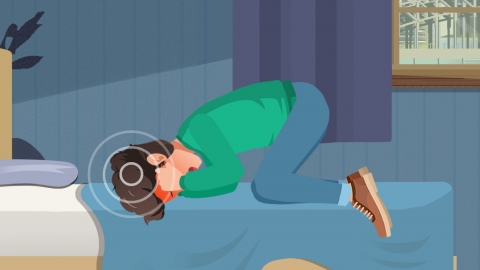What are the 10 symptoms of a mild concussion?
Generally speaking, there is no definitive list of ten symptoms for mild concussion. Symptoms of a mild concussion may include brief loss of consciousness, headache, dizziness, nausea and vomiting, insomnia, among others. If discomfort occurs, it is recommended to seek medical attention promptly. Detailed explanations are as follows:

1. Brief loss of consciousness
After a head injury, the brain's nerve cells and fibers may experience temporary disruption and shock, which can lead to transient dysfunction of the brain, resulting in brief loss or impairment of consciousness. This typically lasts for several seconds to several minutes and rarely exceeds half an hour.
2. Headache
External forces acting on the head can stimulate pain-sensitive structures such as the scalp, skull, and intracranial tissues, leading to headache. Additionally, transient abnormalities in cerebral circulation and metabolism after injury can cause cerebral vasodilation or spasm, which may exacerbate headache. The pain can manifest as aching, stabbing, or throbbing.
3. Dizziness
A concussion may affect the balance function of the inner ear as well as the brain's processing and integration of balance-related information. Furthermore, neurological dysfunction following brain injury can interfere with the vestibular nerve conduction pathway, potentially causing dizziness. Patients often experience a feeling of mental confusion, vertigo, and unsteadiness while walking or standing.
4. Nausea and vomiting
Head trauma may stimulate the vomiting center within the brain or lead to vestibular dysfunction in the inner ear, causing symptoms of nausea and vomiting. Additionally, changes in cerebral blood circulation and minor fluctuations in intracranial pressure caused by concussion may stimulate the gastrointestinal tract, leading to gastrointestinal dysfunction and resulting in nausea and vomiting.
5. Insomnia
Following a concussion, the brain's neural regulatory functions may become imbalanced, with nerve cells remaining in a relatively excited state, making it difficult to enter the normal inhibitory state required for sleep. Additionally, post-injury discomfort such as headache and dizziness, along with psychological stress related to the injury event, can disrupt sleep, leading to difficulty falling asleep, light sleep, or frequent awakenings with vivid dreams.
When engaging in sports or activities with potential risks, it is important to wear appropriate protective gear, such as certified helmets when riding a bicycle and safety helmets during construction work. Ensure a safe home environment by keeping floors dry to prevent slips and falls, installing handrails on staircases, and minimizing the risk of head injuries due to accidental collisions.






